

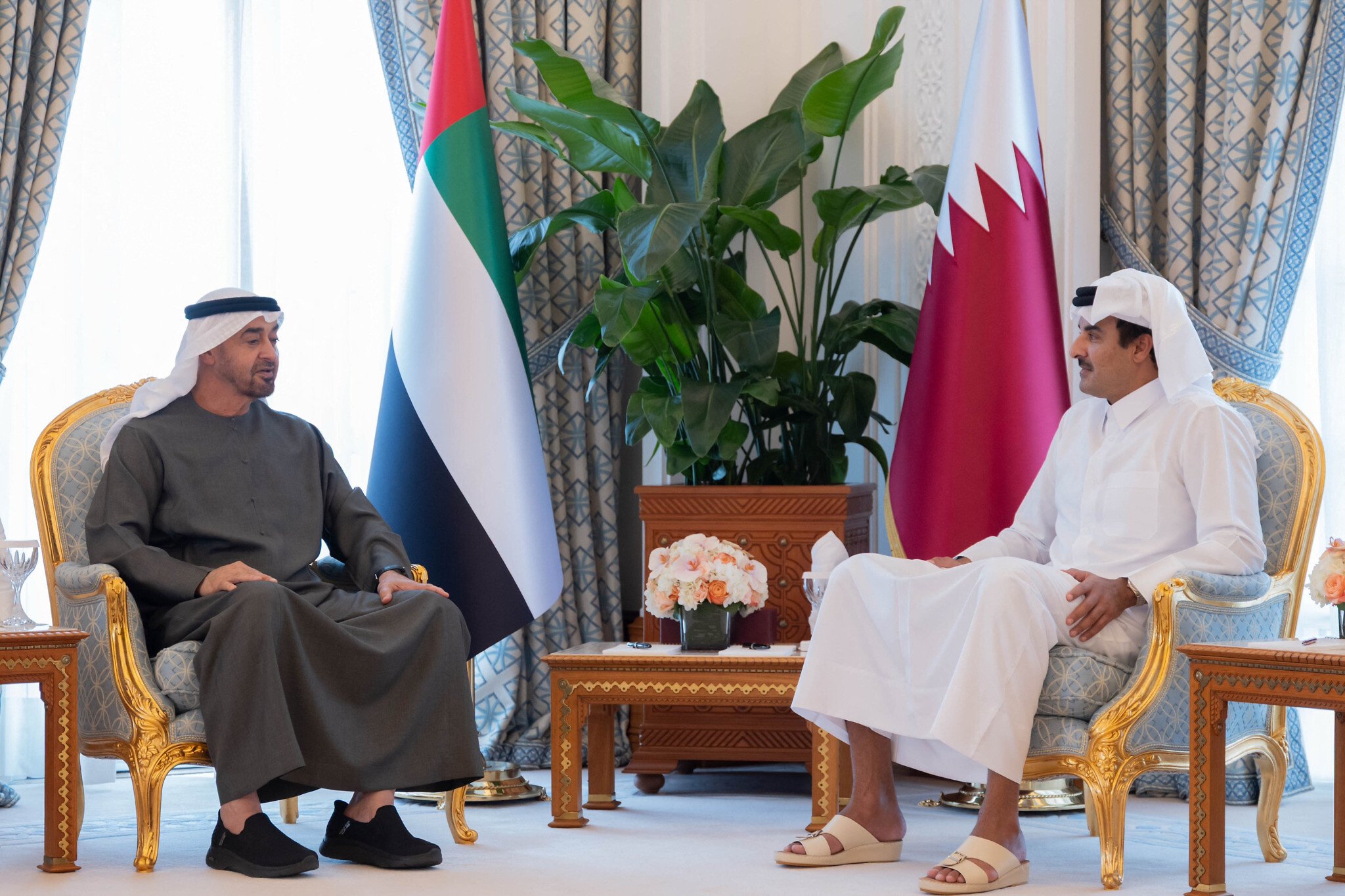
Qatar will host an emergency Arab-Islamic summit in Doha on Sunday and Monday to discuss the Israeli attack on the Gulf state’s capital city that targeted Hamas leaders, according to an invitation received Thursday by Qatar’s news agency.
The unprecedented Israeli airstrike on Tuesday targeted a meeting of Hamas’s top leaders, headlined by Gaza chief Khalil al-Hayya, as they were said to be gathered at the group’s political offices in Doha to discuss a new US-sponsored hostage-ceasefire proposal aimed at ending the war in Gaza.
According to Hamas, none of the main leadership members targeted in the strike were killed, and Israel is said to be increasingly pessimistic about the success of the strike.
Qatar reacted with fury to the brazen attack on its soil, calling it “cowardly” and “barbaric.”
Prime Minister Sheikh Mohammed bin Abdulrahman al-Thani vowed to respond, and said the country is consulting with its regional allies to present a united response, reportedly considering legal action and a number of other measures against Israel. Al-Thani also said that Prime Minister Benjamin Netanyahu “needs to be brought to justice.”
The Qatari premier said that he believes the Israeli attack “killed any hope” for the hostages, and that Doha is “reassessing everything” in regard to its mediation efforts, potentially putting a nail in the coffin of the months-long efforts to reach a deal to free the hostages held by terror groups in Gaza and end the nearly two-year-old war that has ravaged the coastal Palestinian territory.
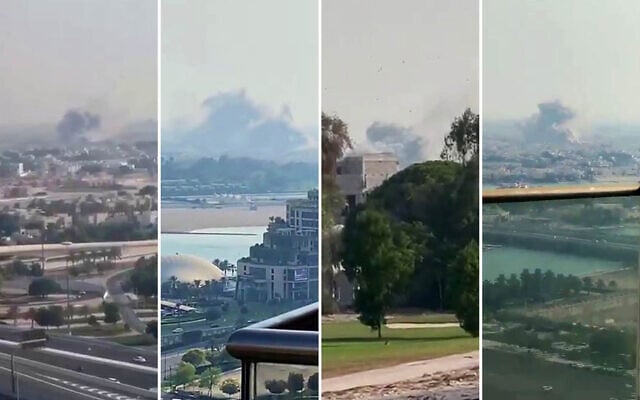
Just a day before the attack, al-Thani met with the Hamas delegation in Doha and pressed them to accept the recent US ceasefire proposal that Israel said it approved. The morning of the attack, al-Thani met with families of Israelis held in Gaza, and said that they are “counting on” Qatar’s efforts and have “no other hope.”
Qatar said it would hold funerals on Thursday in the capital Doha for those killed in the strike.
“The Ministry of Interior announces that the funeral prayer for the martyrs of the Israeli targeting… will be held on the afternoon of Thursday, September 11, 2025, at Sheikh Mohammed bin Abdul Wahhab Mosque, and they will be buried in the Mesaimeer Cemetery,” it said in a statement on X.
It is unclear who exactly will be buried in Thursday’s funeral. Hamas has insisted that none of its leadership cadre was killed in the strike, but that five lower-level members were killed, including the son of Khalil al-Hayya — Hamas’s leader for Gaza and its top negotiator — as well as three bodyguards and the head of al-Hayya’s office.
According to Qatar, the strikes killed at least six people.
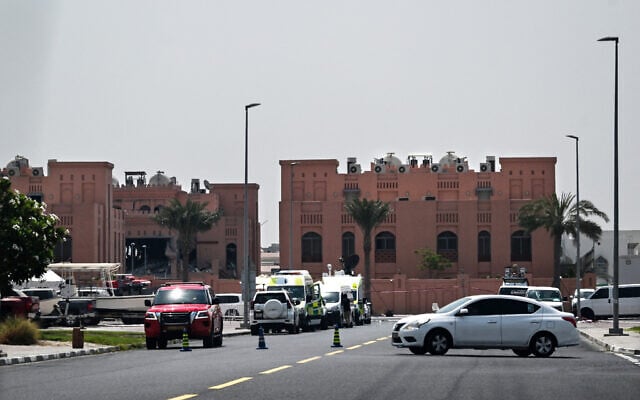
Despite pessimism in Israel over the success of the strike, the Saudi newspaper Asharq Al-Awsat reported that two senior Hamas officials, members of the organization’s political bureau, were wounded in the strike on the group’s Doha headquarters.
According to the report, one of the two officials — neither of whom was identified by name — was in “critical condition.”
Both officials were hospitalized in a private hospital under heavy security, the report said.
In addition to Qatari ire, the strike appears to have also strained ties between Netanyahu and US President Donald Trump.
According to several reports in US media, Trump was furious at Netanyahu’s decision to launch the strike in Doha, with the two reportedly having a heated phone call on Tuesday, during which Trump told off Netanyahu and demanded that he not strike Qatar again.
According to a report in the Wall Street Journal, Trump told Netanyahu that his decision to target Hamas inside Qatar wasn’t wise, and that he was angry that he only heard about it from the American military rather than Israel.
According to the newspaper, Netanyahu responded that he had a brief window to launch the strikes and took the opportunity. A second call between the men later on Tuesday was cordial, with Trump asking Netanyahu if the attack had proven successful, the Journal reported, adding that the premier said he didn’t know.
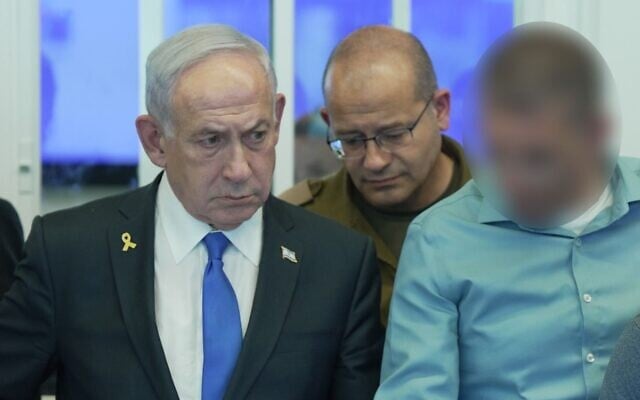
The report also quoted a senior administration official who says Trump is increasingly frustrated with Netanyahu, feeling that the prime minister unilaterally takes moves that box him in and conflict with his aims in the Middle East.
A separate report on the Axios news site, citing two sources with knowledge of the calls, said that Trump demanded that Israel not strike Qatar again.
“It’s unacceptable. I demand that you do not repeat it,” Trump told Netanyahu in the call, according to the sources.
Trump’s advisers were shocked by the strike, the report added, noting that one source close to Trump expressed concern over the way Netanyahu and his top adviser, Strategic Affairs Minister Ron Dermer, handled the matter, calling it “an unpleasant reminder” of behavior that caused tension with Trump in his previous term.
Trump has publicly said that he was “not thrilled” about the strikes, given that Qatar is a key US ally and home to the largest US military base in the Middle East.
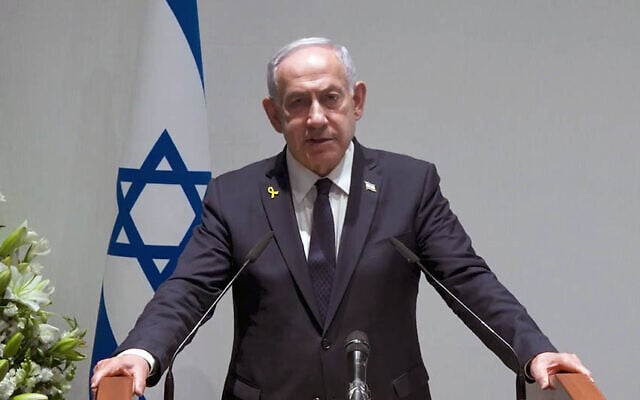
The strike did not seem to have harmed ties between the US and Qatar, as on Thursday, Doha rejected an Axios report that claimed al-Thani had told White House envoy Steve Witkoff that Qatar will reevaluate its security partnership with Washington “and maybe find some other partners” who can protect the Gulf emirate.
In a statement, Doha called the claim “categorically false,” and “a clear and failed attempt to drive a wedge between Qatar and the US by those who benefit from chaos in the region and oppose peace.”
“The Qatar-US security and defense partnership is stronger than ever and continues to grow,” said Qatar’s International Media Office. “Our two countries have supported each other for many years, and we will continue working together to promote global peace and stability.”
On Wednesday, even after Trump’s reported warnings, Netanyahu warned Qatar — and “all nations that harbor terrorists” — that either it must “expel” the Hamas politburo members or “bring them to justice, because if you don’t, we will.”
Netanyahu also accused Qatar of harboring terrorists, financing Hamas and giving its leaders mansions.
Qatar later hit back at Netanyahu, denouncing his remarks as “Islamophobic” and “reckless” and describing them as “explicit threats of future violations of state sovereignty.”
“Netanyahu is fully aware that the hosting of the Hamas office took place within the framework of Qatar’s mediation efforts requested by the United States and Israel,” the Qatari foreign ministry said in a statement.
“The negotiations were always held in an official and transparent manner, with international support and in the presence of US and Israeli delegations. Netanyahu’s insinuation that Qatar secretly harbored the Hamas delegation is a desperate attempt to justify a crime condemned by the entire world.”
Qatar has hosted Hamas’s political bureau since 2012 with Washington’s blessing, and has been a key mediator in talks between Hamas and Israel, alongside Egypt and the United States.
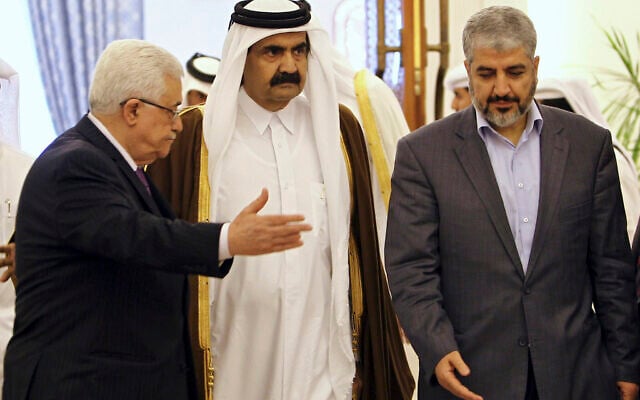
As Qatar’s role in future negotiations appeared to be up in the air, an “informed Egyptian source” told the Qatari al-Araby al-Jadeed outlet on Thursday that Cairo would continue mediating ceasefire negotiations and end the war in Gaza.
“Egypt will not allow its mediation efforts to turn into cover for Israel to continue its attacks,” said the source.
But at the same time, Egyptian diplomatic sources said that Cairo “will not allow the continuation of the situation as usual after this dangerous development,” and will avoid meeting Israeli delegations in the near future.
“As long as [Prime Minister Benjamin] Netanyahu continues his current policies, engagement will be minimal and will serve only Egypt’s national security interests,” said a senior Egyptian official.
Israeli-Egyptian ties mostly revolve around close security and intelligence relations, and the export of Israeli natural gas to Egypt.
Hamas also holds offices in Turkey, and according to a report in the Lebanese newspaper Al-Akhbar, citing Egyptian sources, Israel considered an operation against the group’s Turkish bureau but decided against it, favoring the strike in Doha.
According to the sources, Netanyahu’s government chose to strike Qatar instead of Turkey out of the belief that the Trump administration could handle the issue with Qatar, unlike with Turkey, because of its NATO membership.
The report did not elaborate on the timing of the planned operation in Turkey.
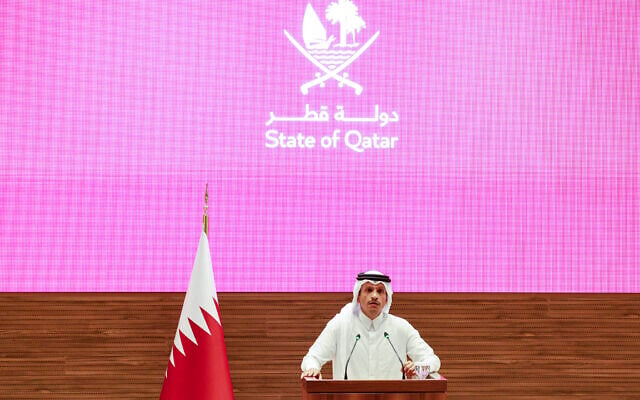
Former Israeli ambassador to the US and UN Gilad Erdan revealed in an interview with Channel 12 on Wednesday that he was explicitly instructed by Israel’s National Security Council (NSC) not to criticize Qatar during his time in office. According to Erdan, these directives came shortly after the October 7, 2023, Hamas-led attacks, despite growing concerns over Qatar’s relationship with Hamas.
“I received direct calls from the NSC asking me not to speak out against Qatar,” Erdan said, adding that the decision was based on Qatar’s role in hostage negotiations. He said he expressed strong disagreement with this approach, arguing that Israel should have launched a delegitimization campaign against Qatar immediately after the October 7 events.
Erdan criticized what he described as a broader institutional failure, saying, “All branches — from the Prime Minister’s Office to the Mossad — made a mistake and danced with the devil named Qatar.”
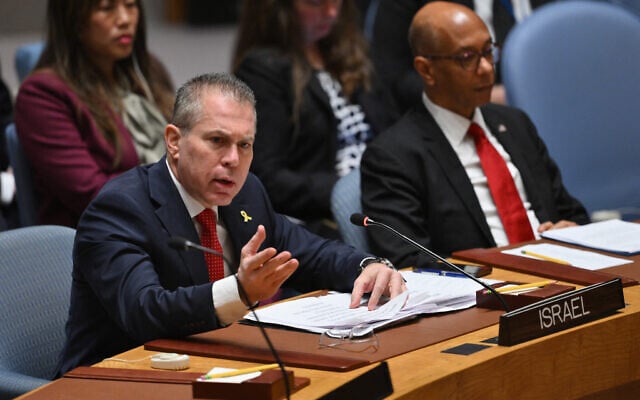
Erdan also defended the recent Israeli strikes targeting senior Hamas officials in Doha, claiming such actions should have occurred much earlier and been paired with diplomatic efforts to isolate Qatar internationally.
He further alleged that the Mossad refrained from leading the recent operation due to “personal relationships and commitments” developed over the years with Qatari officials. Instead, the operation was handled by the Shin Bet and the IDF, which, according to Erdan, reflects the depth of the Mossad’s entanglement with Qatar.
According to separate a Channel 12 report on Wednesday evening, Mossad chief David Barnea had told the premier that he believed it would be a “mistake” to carry out the strike at this time, given that discussions about a ceasefire and hostage deal were ongoing.
Instead, the Mossad head was said to have suggested that Israel wait another week to launch the strike, allowing time for Hamas to respond to the US proposal.

